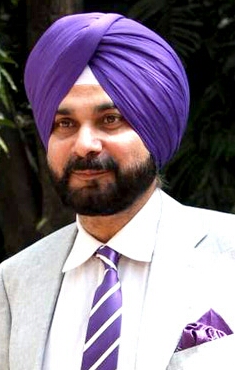An extradition request submitted by the Government of India, the Requesting State (“GOI”) for the extradition of Nirav Deepak Modi (“NDM”):
On presentation of evidence:
“Unlike the evidence from the Defence, the evidence produced by the GOI in the case, through no fault of Counsel, was poorly presented and very difficult to navigate. Observations I note were similarly made by the Senior District Judge (Magistrates’Courts) in Mallya. I hope the GOI take these observations on board in relation to future requests.”
Para 12
In Devani v. Kenya [2015] EWHC 3535 (Admin) Aitkens LJ analysed the correct approach to
extradition u/s.84(1), as under:
“ 47. In the case of a country to which s.84(1) EA 2003 applies, a three-stage process
is involved once the DJ is satisfied that the request document itself establishes that
the conduct alleged is criminal in accordance with the laws of the requesting state.
The first stage, following the decision of the House of Lords in Norris v. Government
of the United States of America, is to identify, for the relevant charge, the “essence of
the conduct” which is alleged by the requesting state. Secondly, the DJ must
determine, upon the assumption that the relevant conduct had occurred in the UK,
whether that conduct would be an offence under the UK law. For this purpose, the
requesting state will often produce “notional English charges” identifying the
particular UK offence which is said to be constituted by the “essence of the conduct”
alleged. Thirdly, the DJ must determine whether the requesting state has proved, on
the basis of all admissible evidence (taking account of the admissibility rules set out
in sections 84(2) – (4), s.202 and s.205 of the EA) whether there is sufficient evidence
to substantiate the conduct alleged.
My role is to consider whether a tribunal of fact, properly directed, could reasonably
and properly convict on the basis of the evidence. I am not required to be sure of guilty
in order to send the case to the Home Secretary. The extradition court must conclude
that a tribunal of fact, properly directed and considering all the relevant evidence,
could reasonably be sure of guilt.
Extracts of findings of the Magistrate:
I do not accept the submissions that NDM was involved in legitimate business and using the LOUs in a permissible fashion. It would not be in PNBs interests to create such enormous financial exposure through a financial product which the evidence from the Bank officials confirms is not designed for general business lending, I find there is no evidence of genuine import transactions and the applications for the LOUs was being done dishonestly. The statement of Rajendra Keshri is supportive of the fact the LOUs obtained by NDM’s firms were used to re-pay liabilities in relation to buyer’s credit obtained from earlier LOUs. Suggestion that buyers credit obtained by the Nirav Modi Firms was required for making payment for genuine imports from suppliers mentioned in the LOUs is not born out by statements from the dummy directors in the Hong Kong and Cairo based companies. Their evidence is that these companies were not genuine suppliers and were shadow companies controlled by NDM through several employees who were represented as directors of the
companies. NDM’s firms’ business transactions were primarily with these dummy companies. The statements demonstrate that the circulation of pearls, diamonds and gold between the NDM firms and the Dubai and Hong Kong based companies was not genuine business and the companies were being used for transferring funds generated “in the guise of sale – purchase / export – import of goods” colloquially referred to as “round tripping transactions”. Again, there no evidence demonstrating that the NDM firms had any sanctioned facility with PNB.
Although there may be no direct evidence of NDM entering into an agreement with Bank officials and his other alleged conspirators, the evidence of the links between Nirav Modi, Nehal Modi, Mihir Bhansali, Gokulnath Shetty and Yashwant Joshi alone combined with my other findings above, in particular the lack of evidence of any sanctioned limit agreed with the Bank; the manner in which the LOUs were obtained and concealed, the manner to which the LOUs was used, the actions of NDM, his brother and Mr Bhansali after the CBI investigation opened cumulatively and progressively eliminate the alternative narrative put forward on NDMs behalf. The combination of the evidence taken as a whole create an inevitable conclusion NDM, his brother, Mr Shetty, Mr Bhansali and Mr Joshi Jie Zhang, were operating together dishonestly with other associates and banking officials to defraud the PNB.
Proof of Mense Rea need not be as per English Law:
A request need not identify the relevant mens rea of the equivalent English offence for
the purposes of satisfying dual criminality. Instead it suffices that the necessary
mental element can be inferred by the court from the conduct identified in the request
documents or that the conduct alleged includes matters capable of sustaining the
mental element necessary under English law. (Para 97)
Scrutiny by the Court of the description of conduct alleged to constitute the
offence specified, is not an enquiry into the adequacy of the evidence summarised in
the request. The Court is not concerned to assess the quality or sufficiency of the
evidence in support of the conduct alleged; R (Castillo) v. King of Spain [2005] 1WLR
1043. (Para 100)
Evidence of Justice Thipsey:
Continue reading “Nirav Modi to be extradited from UK to India; Orders Magistrate” →

